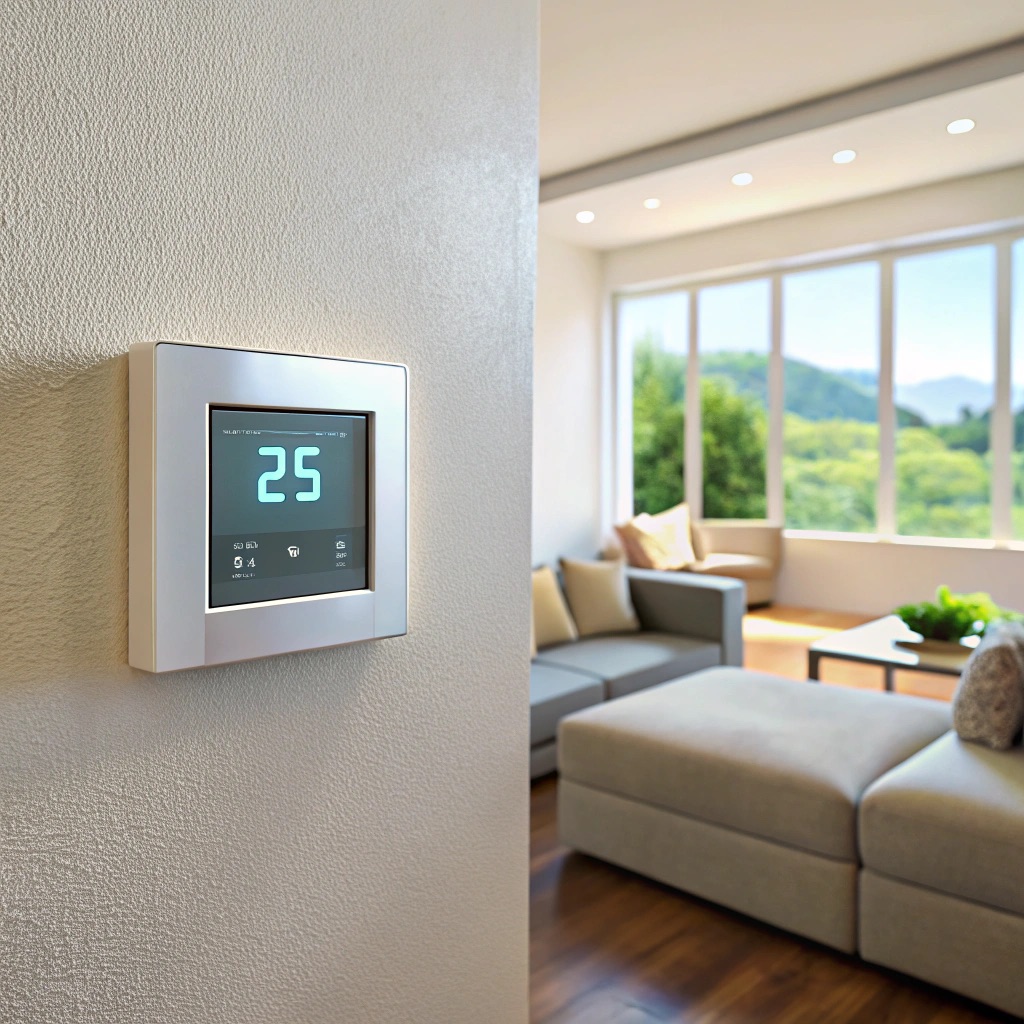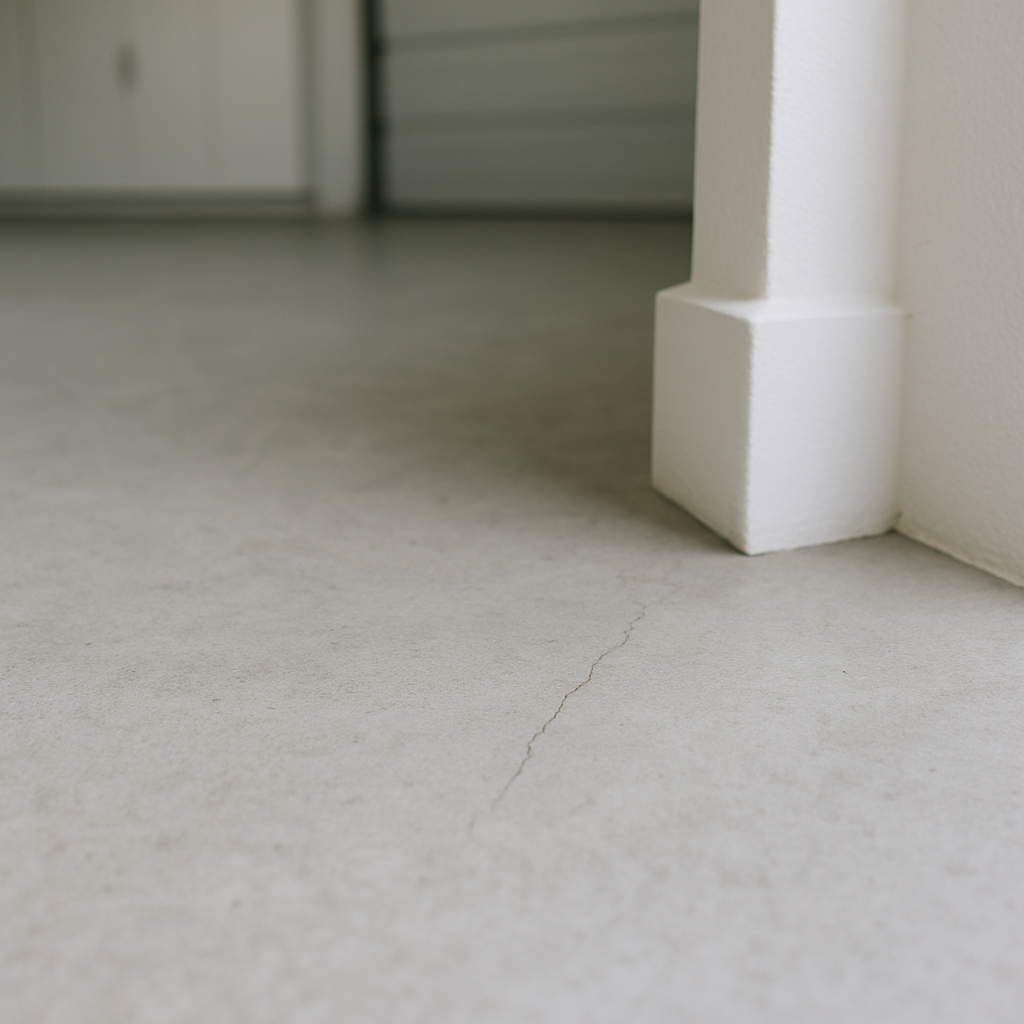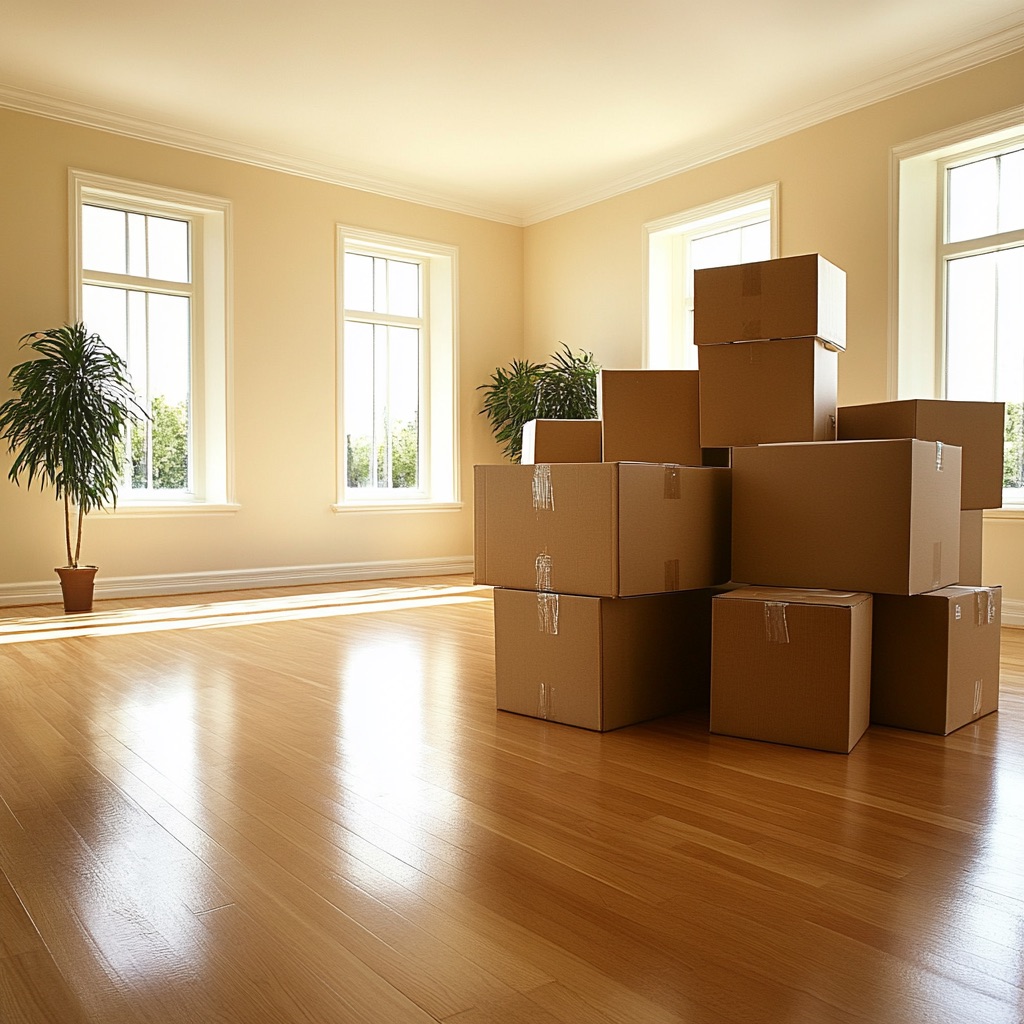Last updated on
Use these seven tips to sleep better in your bedroom. Read on!
While sleep won’t solve all of your problems, it may certainly help you feel better and have a more enjoyable day. Sleeping for 7 to 9 hours a night has been shown to improve health in a wide variety of ways, including making us less prone to illness, more productive at work, and kinder to our loved ones.
Even if you try to sleep on a regular schedule, avoid caffeine after noon, avoid using gadgets in the hour leading up to bedtime, and try to meditate and calm yourself, you may still find that sleep is elusive sometimes.
This is often the result of uncontrollable circumstances. Here are some things that will make your bedroom a relaxing place and help you fall asleep again.
What's Inside
White Noise
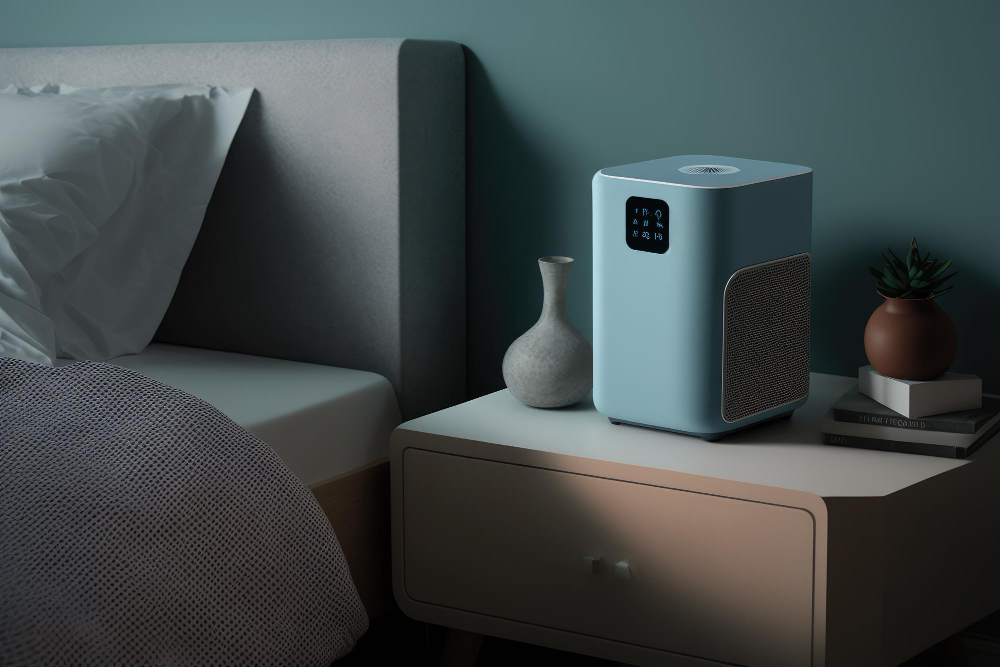
One of the most crucial steps in making your bedroom a good place to sleep is reducing the amount of noise there is. Adding white noise to a bedroom may help mask distracting noises when the source of the disturbance cannot be eliminated. When all audible frequencies are played at once and at the same volume, the result is white noise.
It is a distinct sound that is often likened to radio static, despite the fact that other people use the phrase to denote any background noise. If you’d like not to have any electronic devices (like a TV or smart speaker) in your bedroom, a low-tech white noise machine is a good alternative. Whatever has a soothing tone or is stable will do the task.
Weighted Blanket
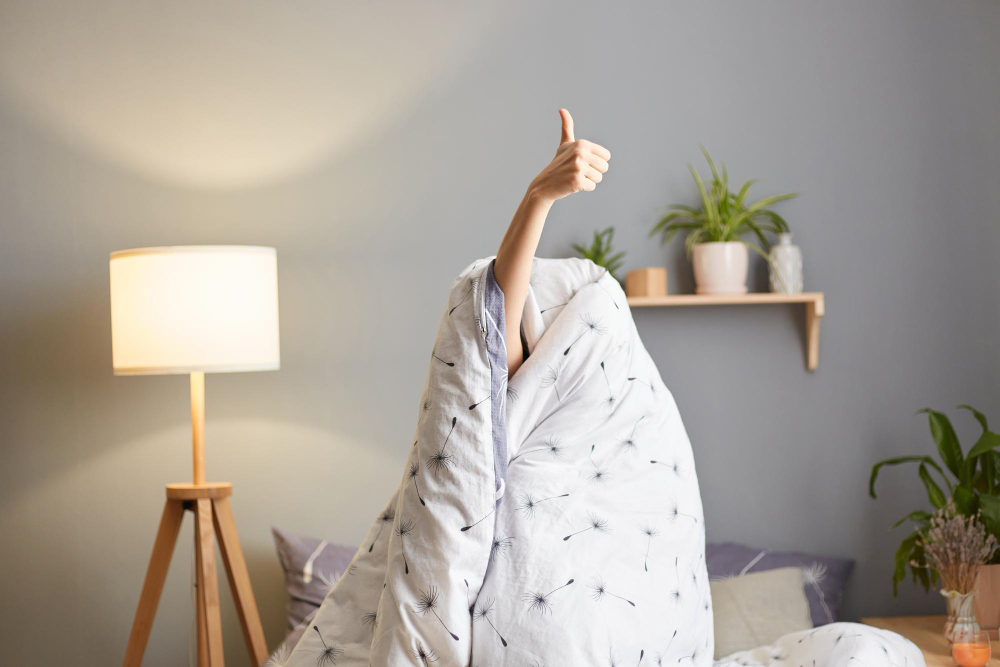
Years after they were first used to calm children with autism and other behavioral disorders, blankets stuffed with plastic beads or pellets have become popular among healthy children and adults alike.
While research into the blankets’ effectiveness in alleviating stress and anxiety is still preliminary, there’s no denying that snuggling up in one can feel like being wrapped in a warm hug. And the best part is that you can put them away on a sprung divan base in the morning, so they don’t take up a lot of bed space.
The Sleep Foundation recommends choosing a blanket that is around 10% of your body weight; however, those who suffer from sleep apnea, chronic pain, or respiratory difficulties should avoid using such heavy blankets.
Light Blocking Shades
The sheer drapes that billow in the air may appear lovely on a Pinterest board dedicated to beach cottages, but they won’t do you much good when the sun streams in at six in the morning or the streetlight outside your window remain on all night.
Studies have shown that a decent pair of blackout shades is essential for creating the total darkness necessary to signal the brain that it is time to sleep. You can get beautiful, light-blocking, opaque custom curtains in every color you can imagine at any number of home improvement shops or online.
Good Mattress
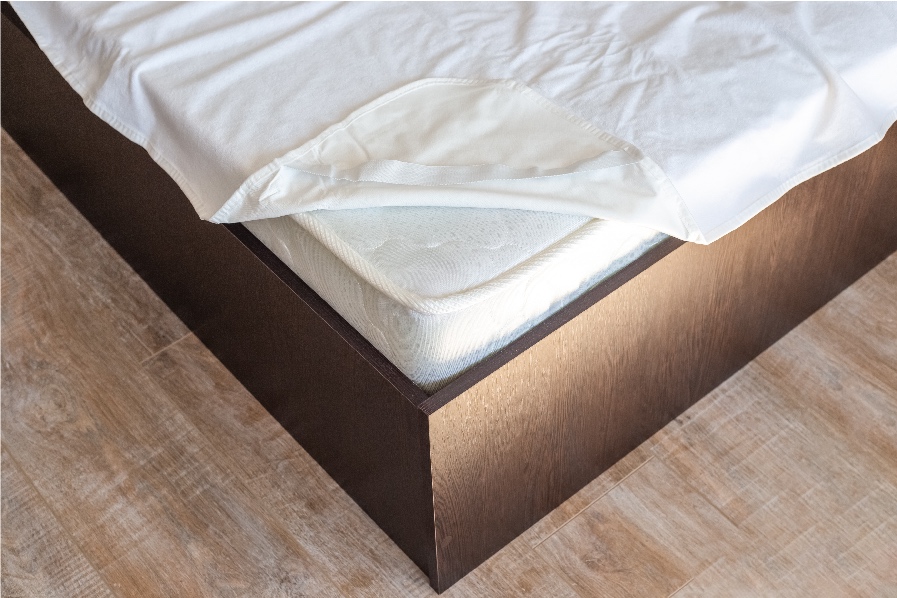
The way your body feels when you first get up in the morning is greatly affected by the quality of sleep. That’s why your mattress is the single most significant investment you can make for your nightly rest. Finding the proper mattress might be the difference between restless nights and deep, rejuvenating sleep.
One must consider their own body type, sleeping posture, and health status while selecting a mattress from the wide variety available. It’s also crucial that the mattresses selected are comfortable and don’t break the bank. Your back, neck, spine, and legs will all receive the proper support they need from the right mattress. When treated well, a high-quality mattress can last for many years.
Wall Colors
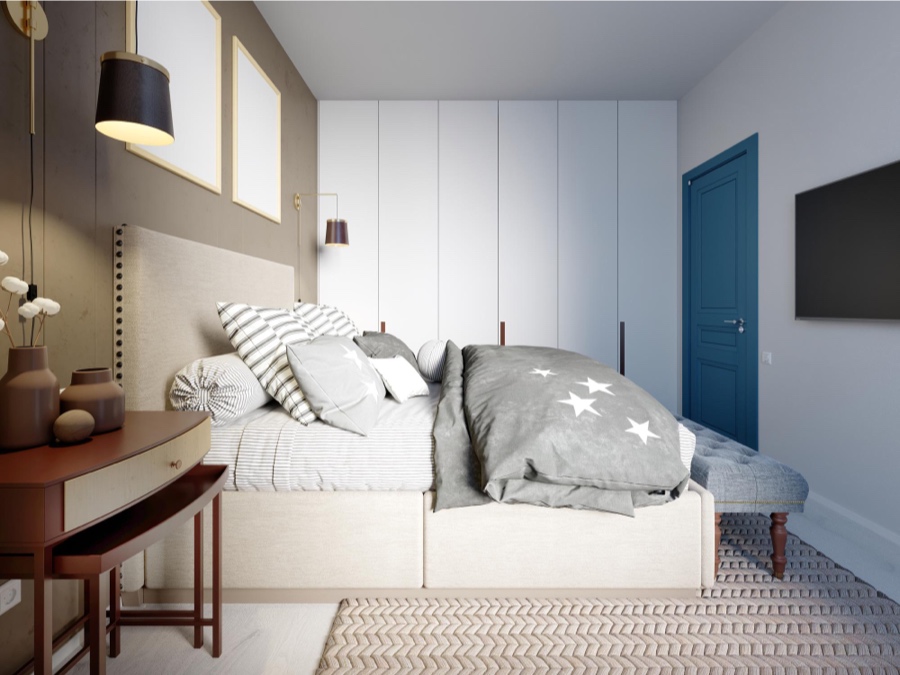
Although there is no proven link between wall color and quality of sleep, bedrooms painted in soothing tones like blues, greens, taupes, and grays are perfect. The objective, in both a baby’s and an adult’s bedroom, should be to create an environment that encourages rest and sleep.
Neons and other energizing colors, such as bright orange or high-octane pink, are definitely best avoided. Your bedroom should be a place of peace and quiet. You should do whatever makes you happy, but remember that stimulating your senses might disrupt your sleep.
Reduced Blue Light
Daytime exposure to light is good for you, while midnight exposure has the reverse impact. Once again, this is because it keeps your body and mind convinced that it is still daylight. Hormones that aid in relaxation and sleep, such as melatonin, are suppressed as a result.
The worst offenders are gadgets that produce a lot of blue light, such as cell phones and laptops. Several common practices exist to lessen the impact of blue light at night. Try some of these solutions, such as blue-light-blocking eyewear or software for your computer; turn off the TV and dim the lights at least two hours before bedtime.
Eye Mask
If you’re looking to turn your bedroom into a dark haven, finding the right shades is important. However, you can’t take your window covering with you when you travel for business or vacation; this is why an eye mask is so useful.
The American Sleep Association recommends searching for an eye mask made from a skin-friendly material like silk or quilted cotton that fits snugly and pleasantly all night long. Wearing a mask has been shown in research to increase melatonin levels and the duration of REM sleep.
Just as crucial as working out and eating well is getting enough sleep. Lack of sleep has been shown to have direct and negative consequences for hormone levels, physical performance, and cognitive ability. It may also make people gain weight and put their health in danger, which is a problem for both adults and kids.
On the other hand, getting enough sleep may improve your eating habits, physical performance, and overall health. However, the amount and quality of sleep have dropped during the past several decades. In reality, a lot of individuals consistently have trouble sleeping.
One of the most essential things you can do for your health and your weight is to obtain a good night’s sleep. You can do so much better by bringing the above-mentioned goods into your bedroom.
